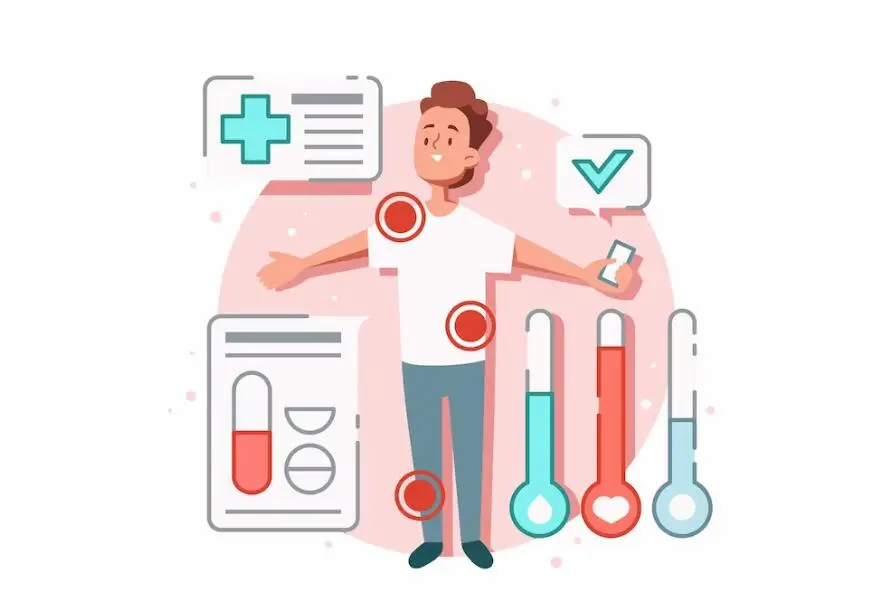The medical field is vast, intricate, and ever-evolving. With the lives of patients in their hands, future medical professionals must be rigorously tested to ensure they possess not only theoretical knowledge but also the practical skills required. This has made the assessment of medical knowledge a critical component in medical education. While traditional methods have their place, modern, interactive assessments offer a more holistic view of a student’s competence and understanding.
Table of content
- Part 1: 6 Medical Knowledge Assessment Ideas for Trainers & Learners
- Part 2: OnlineExamMaker: Free Online Assessment Software for Medical Training
- Part 3: How to Create an Engaging Medical Assessment with OnlineExamMaker?
The Traditional Versus Modern Assessment Paradigm

Historically, medical knowledge was often assessed through written examinations. These exams tested a student’s theoretical understanding and retention of information. While such methods are effective in evaluating certain competencies, they might not offer a complete picture of a student’s ability to apply knowledge in real-world scenarios. Enter the modern assessment paradigm, where the emphasis is not just on what students know, but also on how they apply, analyze, and adapt that knowledge.
6 Medical Knowledge Assessment Ideas for Trainers & Learners
1. Objective Structured Clinical Examinations (OSCEs)
An OSCE typically involves a series of stations wherein students demonstrate specific skills or knowledge in simulated clinical scenarios. This approach offers a more interactive and practical assessment than traditional written exams. OSCEs allow teachers to gauge a student’s ability to apply their learning in practical scenarios, making it a gold standard in many medical schools worldwide.
2. Create an Interactive Online Medical Assessment

Online assessments allow for widespread access, removing geographical barriers. Medical students or professionals can be evaluated from virtually anywhere, making it particularly valuable for remote or underserved areas.
The online assessment tool will calculate the score automatically, which will save teachers a lot of time. More over, teachers can add video, audio into the medical test to deliver interactive experience for students.
You might like to know
Create an auto-grading quiz/assessment without any coding – try OnlineExamMaker today!
3. Peer Teaching and Assessment:
There’s truth to the adage, “To teach is to learn twice.” In peer teaching, students take on the role of educators, reinforcing their understanding of the subject. They also assess their peers, which hones their skills of observation and critique, all while fostering a collaborative learning environment.
4. Digital Simulations and Virtual Reality (VR)
Technology has transformed medical training. Digital simulations and VR platforms allow students to practice procedures and make decisions in a controlled, risk-free environment. Whether it’s a virtual surgery or diagnosing a digital patient, these tools offer repeated practice until mastery is achieved, ensuring readiness for real-world scenarios.
5. Portfolio-Based Assessment
Over time, students can compile portfolios that document their learning journey. These portfolios, which include case studies, reflections, research, and more, provide a comprehensive view of a student’s growth and understanding. It’s a continuous form of assessment that also encourages students to reflect on their learning.
6. Patient Feedback in Clinical Training
Who better to assess a budding medical professional’s bedside manner and communication skills than actual patients? Integrating patient feedback gives students invaluable insights into their interpersonal skills and areas of improvement.
The Role of Feedback in Assessment
In all these assessment methods, feedback plays a pivotal role. Constructive feedback helps students identify their strengths and areas needing improvement. Techniques, such as the “feedback sandwich” (positive feedback, followed by areas of improvement, and ending with more positive feedback), have proven effective. It’s essential that feedback is constructive, specific, and leads to actionable insights for the student.
Challenges and Considerations
While these modern assessment techniques offer a more rounded view of a student’s capabilities, they come with challenges. For instance, the technology required for digital simulations may not be readily available in all institutions. Peer assessments, while valuable, can sometimes be influenced by biases or interpersonal dynamics. It’s crucial for educators to be aware of these challenges, offering guidance and setting clear criteria to ensure fairness and objectivity.
OnlineExamMaker: Free Online Assessment Software for Medical Training
OnlineExamMaker is a versatile and user-friendly online tool that empowers medical teachers, trainers, and businesses to create interactive medical quizzes and assessments. The software simplifies the process of designing and deploying quizzes to engage learners, improve knowledge retention, and assess performance.
Key Features:
• Wide range of question types, including multiple-choice, fill in the blanks, and matching.
• Customizable themes, colors, and branding options for personalized quiz appearance.
• Multimedia support with the ability to add images, videos, and audio to quizzes.
• Assessment tools and analytics for tracking learner progress and identifying knowledge gaps.
Create Your Next Quiz/Exam with OnlineExamMaker
How to Create an Engaging Medical Assessment with OnlineExamMaker?
Step 1: Login to OnlineExamMaker platform.
Step 2: Upload medical questions to OnlineExamMaker question bank. You can start a question from scratch as well.
Step 3: Create an assessment, then modify settings.
Step 4: Publish & share your medical assessment.
Conclusion
Medical knowledge assessment is not just about evaluating what students know; it’s about preparing them for the myriad scenarios they’ll encounter in their careers. By integrating a mix of traditional and modern assessment methods, educators can ensure they’re nurturing well-rounded, competent, and confident medical professionals ready to make a difference in the world.